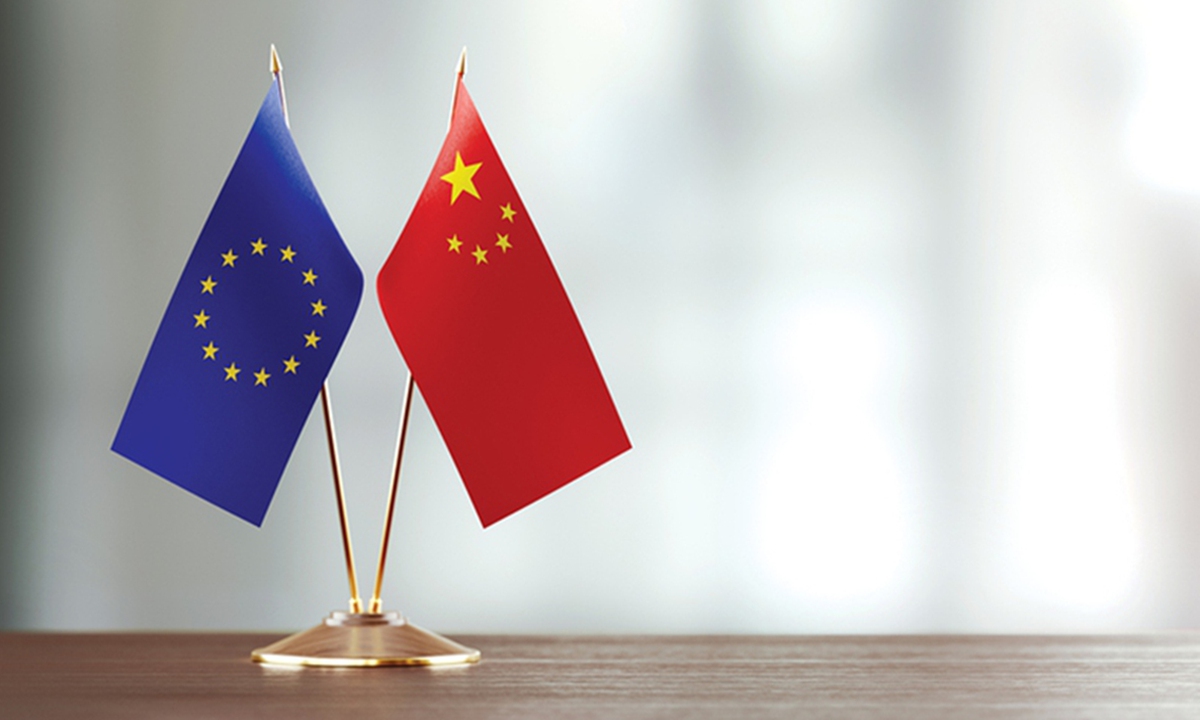China, Europe choose cooperation over differences: Global Times editorial
Source: Global Times Published: 2020/9/15 21:51:24

Photo: VCG
A summit among Chinese, German and EU leaders was held via video conference on Monday. According to the briefing from the Chinese side, the summit achieved a number of results, including the goal to conclude negotiations on the China-EU Bilateral Investment Treaty within the year. Official information from Germany and the EU also focused on cooperation.
But European public opinion highlighted the differences between the two sides, which mirrors Europe's normal state.
Ideological differences between China and Europe have been existing for a long time. Yet the two sides continue to expand their cooperation and interactions. This is the general trend of China-Europe ties. The desire of both sides to keep strengthening the trend is real. It is a wish not only at the national levels, but also from their companies.
Surveys conducted by the European Union Chamber of Commerce in China and China Chamber of Commerce to the EU show that if China further expands its market access, and Europe further improves its business environment, companies from both sides are willing to invest more in each other.
Economic and trade cooperation is the most substantial and stimulating part of China-Europe relations. It can provide a tremendous driving force for people-to-people and cultural exchanges, which in turn promote mutual understanding and tolerance between the two sides. Economic and trade cooperation between China and Europe could be considered well developed. China surpassed the US as Germany's largest export market in the second quarter of 2020, and has long become some European countries' biggest fashion market apart from the EU.
The most common disputes between China and Europe are about human rights and in relevant fields, such as Xinjiang- and Tibet-related affairs, and the national security law for Hong Kong. But it needs to be pointed out that such clashes over human rights are ambiguous. It is true that there exist differences over human rights between the two sides. Yet the inaccurate part is that those disputes have been severely exaggerated. They have been turned into political clashes, even as a bargaining chip to pressure China, in an attempt to make the latter concede on economic and trade matters.
Chinese society has absorbed part of Western concepts of human rights. Now, China pays great attention to the improvement of people's livelihood and cherishes every single life during its epidemic fight. Has it had any impact on Europe? As China narrows its gap with the West in industrialization, exchanges on human rights will be a process to learn from one another. Gone is the era when the West could lecture China easily.
Europe views China's Xinjiang- and Hong Kong-related affairs as human rights issues, but the 1.4 billion Chinese people do not think so. They believe Xinjiang had to take utmost measures to wipe out terrorism and extremism from which it once suffered seriously. Chinese society also firmly opposes some forces which have tried hard to turn the high-degree autonomy in Hong Kong to independence, or to remove Hong Kong from the jurisdiction of the Chinese central government and make it fall into the embrace of the US and the UK.
China is such a huge country that the complexity of its internal governance during its modernization process is unimaginable to the Europeans. European public opinion should respect the interests of the 1.4 billion Chinese as well as their understanding of and emotions toward China's own affairs. The Europeans should be clear that China's policies on Xinjiang and Hong Kong are not only the decision of the Chinese government, but also the choice of the Chinese people.
If the Europeans have reasonable views over Xinjiang and Hong Kong affairs, the Chinese people will not reject them. But if some forces in Europe attempt to forcefully make China behave as they wish, they can just forget it. No matter how much damage it might cause to China-EU ties, China will never make concessions on its principles.
If China demands Europe to solve its issues of migration, offer solutions to countries like France, Spain and the UK in dealing with separatist movements, and demands that Europe cope with the COVID-19 epidemic in certain specific ways, because reducing infections and deaths is a crucial human rights issue for China, would Europe accept it? Would Europeans feel offended?
One shall never over-politicize the due cooperation between Chinese and European societies. It is hoped that China and the EU can respect each other and achieve win-win results through cooperation. This should outweigh petty concerns or schemes.
RELATED ARTICLES:
Posted in: EDITORIAL